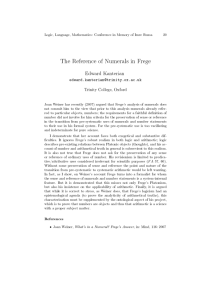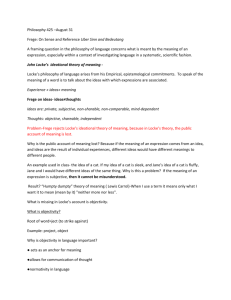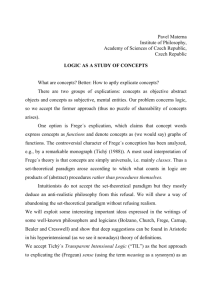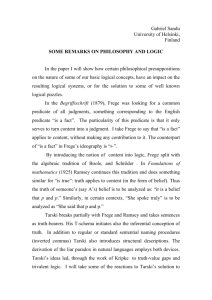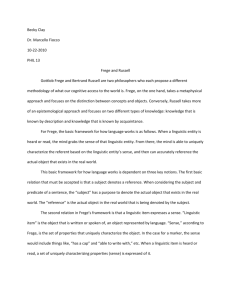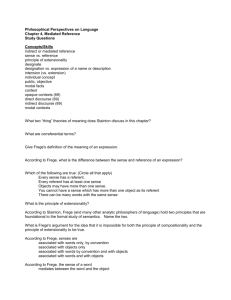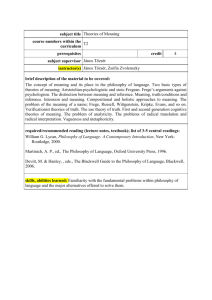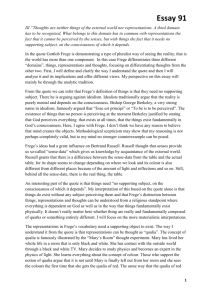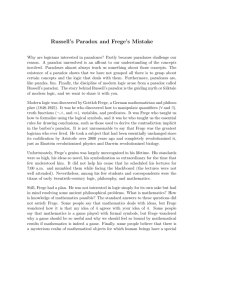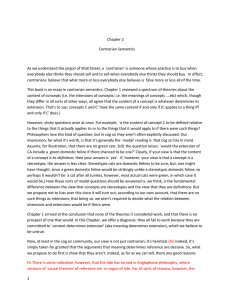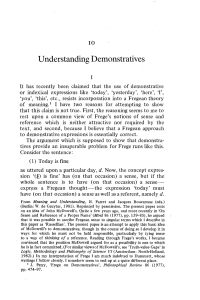PHILOSOPHY OF LANGUAGE
advertisement
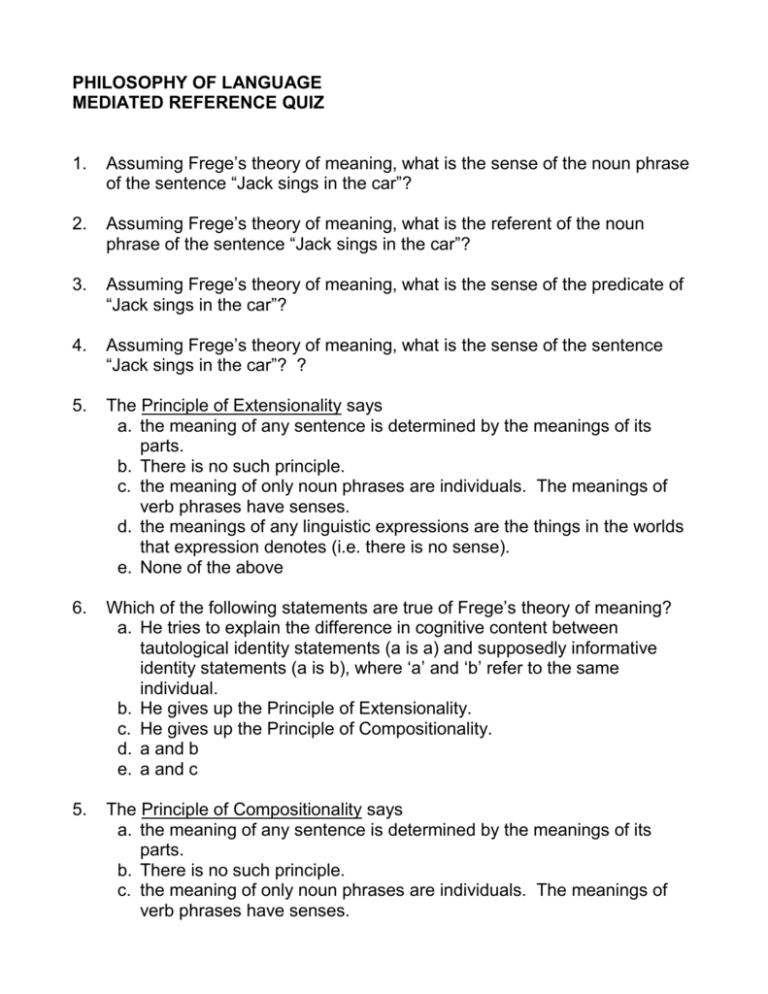
PHILOSOPHY OF LANGUAGE MEDIATED REFERENCE QUIZ 1. Assuming Frege’s theory of meaning, what is the sense of the noun phrase of the sentence “Jack sings in the car”? 2. Assuming Frege’s theory of meaning, what is the referent of the noun phrase of the sentence “Jack sings in the car”? 3. Assuming Frege’s theory of meaning, what is the sense of the predicate of “Jack sings in the car”? 4. Assuming Frege’s theory of meaning, what is the sense of the sentence “Jack sings in the car”? ? 5. The Principle of Extensionality says a. the meaning of any sentence is determined by the meanings of its parts. b. There is no such principle. c. the meaning of only noun phrases are individuals. The meanings of verb phrases have senses. d. the meanings of any linguistic expressions are the things in the worlds that expression denotes (i.e. there is no sense). e. None of the above 6. Which of the following statements are true of Frege’s theory of meaning? a. He tries to explain the difference in cognitive content between tautological identity statements (a is a) and supposedly informative identity statements (a is b), where ‘a’ and ‘b’ refer to the same individual. b. He gives up the Principle of Extensionality. c. He gives up the Principle of Compositionality. d. a and b e. a and c 5. The Principle of Compositionality says a. the meaning of any sentence is determined by the meanings of its parts. b. There is no such principle. c. the meaning of only noun phrases are individuals. The meanings of verb phrases have senses. d. the meanings of any linguistic expressions are the things in the worlds that expression denotes (i.e. there is no sense). e. None of the above 7. Frege’s theory of meaning is different from Russell’s Direct Reference theory of meaning in that a. Russell believes in the Principle of Compositionality and Frege doesn’t. b. There is no major difference. c. Russell believes in the Principle of Extensionality and Frege doesn’t. d. a and c e. None of the above 8. According to Frege’s theory of meaning, what is the relationship between any given linguistic expression (such as the word “sings”) and its sense? a. The two are unrelated. b. Every speaker gets to decide to which sense any given linguistic expression corresponds. c. The sense of a term is related by linguistic convention to the linguistic expression to which it corresponds. d. A sense can have only one linguistic expression related to it. e. None of the above 9. According to Frege’s theory of meaning, what explains the fact that the sentence “Hesperus is Phosphorus” is informative while “Hesperus is Hesperus” is not informative. 10. Which of the following sentences (or sentence pairs), does Frege has trouble with because of his desire to use the Principle of Compositionality? a. “the morning star is the evening star” and “the morning star is the morning star” b. “the morning star is the evening star” and “the morning star is the evening star” c. “Mark Twain is an author.” d. “It is common knowledge that Mark Twain is an author” and “It is common knowledge that Samuel Clemens is an author.” e. None of the above EXTRA CREDIT: What exactly is the problem Frege runs into in #10?
